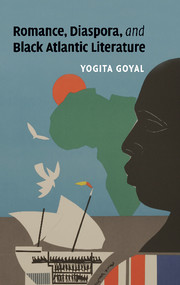Book contents
- Frontmatter
- Contents
- Acknowledgements
- Introduction: the romance of diaspora
- 1 From domestic allegory to imperial romance: Pauline Hopkins and racial mixture
- 2 From double consciousness to diaspora: W. E. B. Du Bois and black internationalism
- 3 From nativism to nationalism: Joseph Casely Hayford, Chinua Achebe, and colonial modernity
- 4 From romance to realism: Richard Wright and nation time
- 5 From revolution to arrested decolonization: Ama Ata Aidoo and the long view of history
- 6 From return to redemption: Caryl Phillips and postcolonial hybridity
- Notes
- Index
5 - From revolution to arrested decolonization: Ama Ata Aidoo and the long view of history
Published online by Cambridge University Press: 04 August 2010
- Frontmatter
- Contents
- Acknowledgements
- Introduction: the romance of diaspora
- 1 From domestic allegory to imperial romance: Pauline Hopkins and racial mixture
- 2 From double consciousness to diaspora: W. E. B. Du Bois and black internationalism
- 3 From nativism to nationalism: Joseph Casely Hayford, Chinua Achebe, and colonial modernity
- 4 From romance to realism: Richard Wright and nation time
- 5 From revolution to arrested decolonization: Ama Ata Aidoo and the long view of history
- 6 From return to redemption: Caryl Phillips and postcolonial hybridity
- Notes
- Index
Summary
It is at the heart of national consciousness that international consciousness lives and grows. And this two-fold emerging is ultimately the source of all culture.
Frantz Fanon, The Wretched of the EarthIn his famous preface to Frantz Fanon's explosive anti-colonial manifesto, The Wretched of the Earth, Jean-Paul Sartre sets up the text in a peculiar relationship to its Western readers. On the one hand, Sartre claims that Europeans have much to learn from Fanon, not only about the non-European world, as “the Third World finds itself and speaks to itself through his voice,” but also truths about the core of Europe itself. On the other hand, Sartre believes that Fanon is not concerned with the West at all, and instead only speaks to the rest of the world. Sartre declares, “What does Fanon care whether you read his work or not?”; “he speaks of you often, never to you” (11, 9). In this way, in Sartre's reading, Fanon's work signals the end of European hegemony and a turn away from Europe on the part of the colonized, as “in the past we made history and now it is being made of us” (23). Ultimately, Sartre concludes, “this book has not the slightest need of a preface, all the less because it is not addressed to us. Yet I have written one, in order to bring the argument to its conclusion; for we in Europe too are being decolonized” (21).
- Type
- Chapter
- Information
- Romance, Diaspora, and Black Atlantic Literature , pp. 181 - 204Publisher: Cambridge University PressPrint publication year: 2010
- 1
- Cited by



